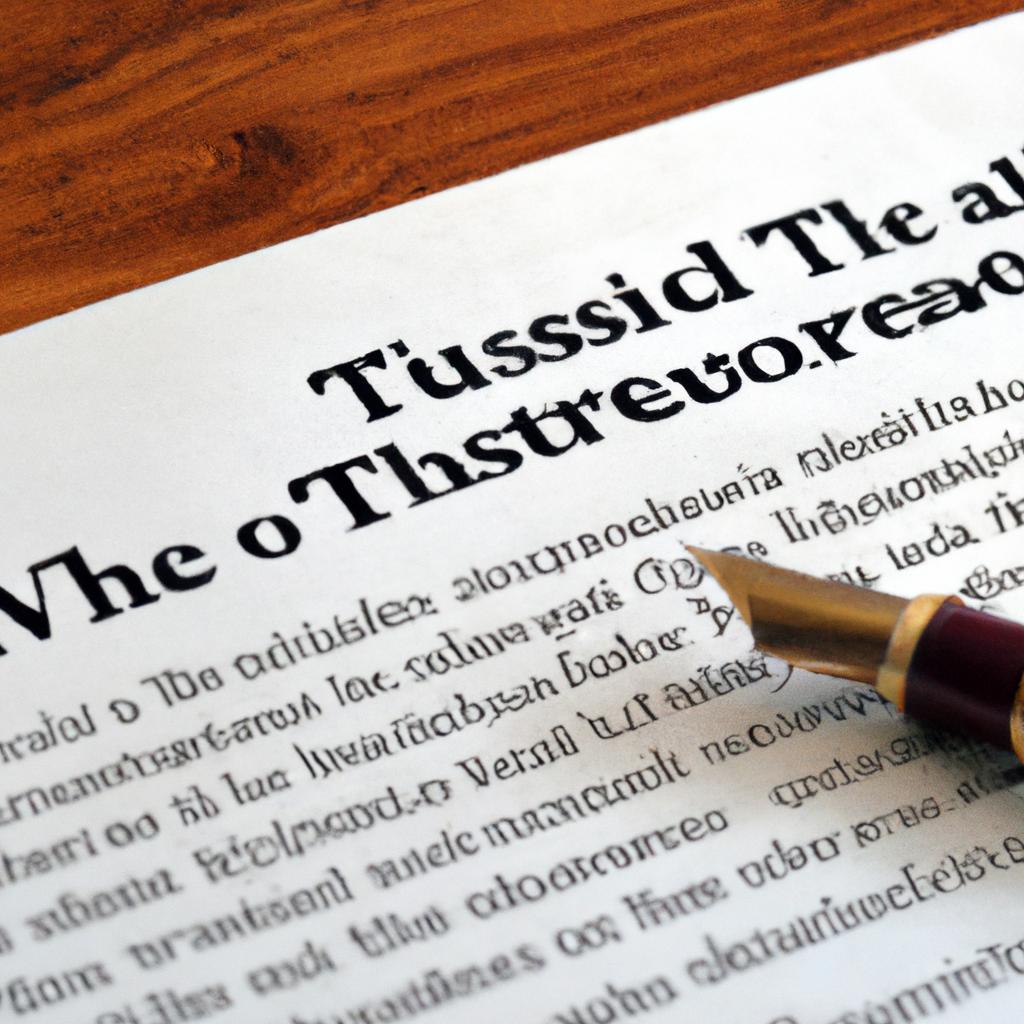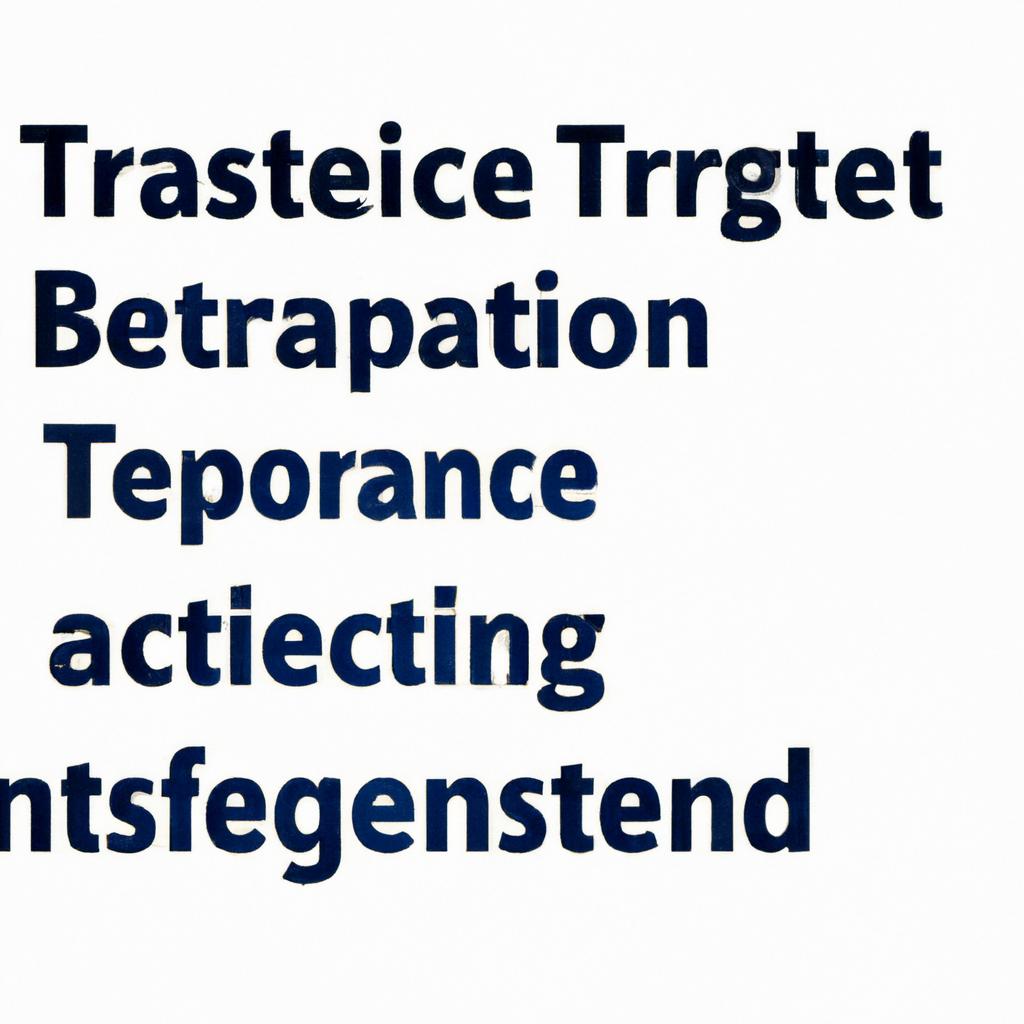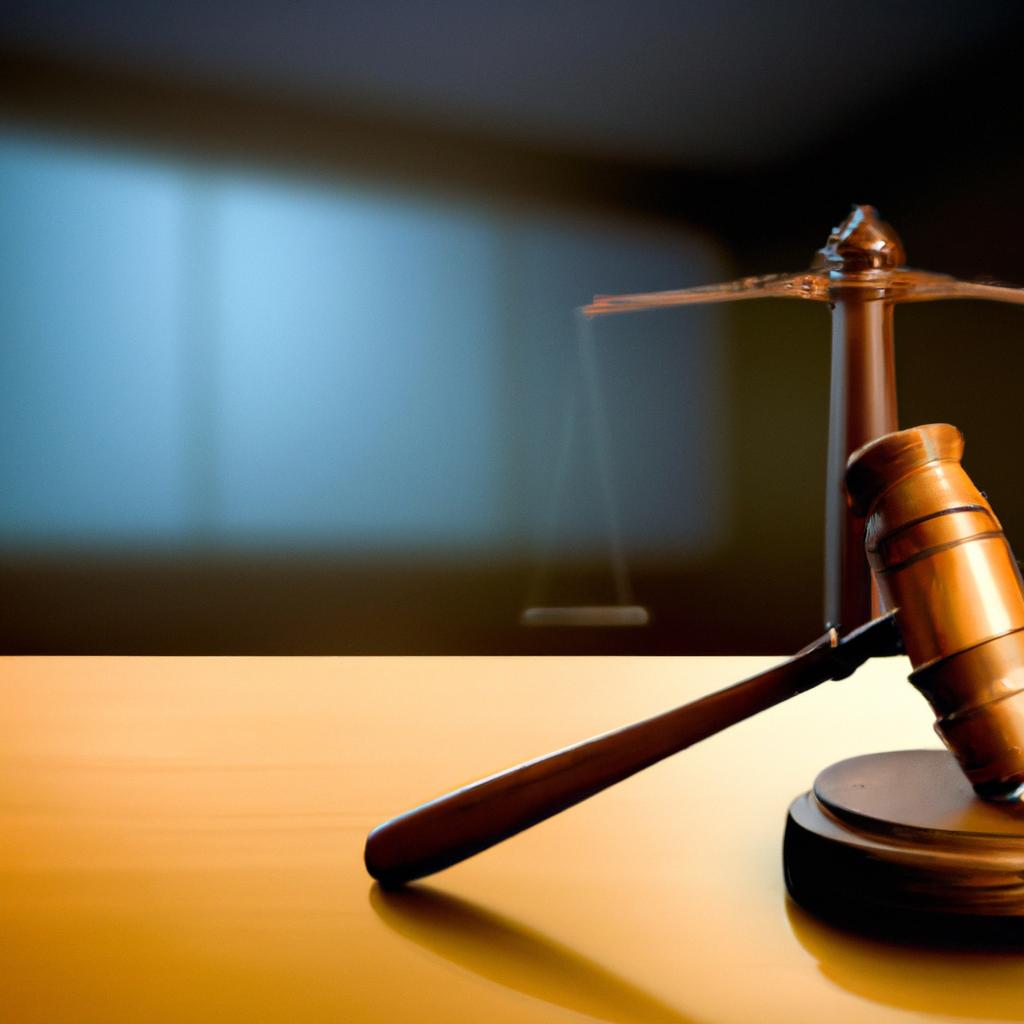As legal professionals, we are often asked about the role of a trustee in a will. Understanding the duties and responsibilities of a trustee is crucial in the realm of estate planning and probate. A trustee plays a pivotal role in ensuring that the wishes of the testator are carried out in accordance with the law. In this article, we will explore the intricacies of what it means to be a trustee of a will, outlining the key aspects that individuals should be aware of when appointing or assuming this important role. Join us as we delve into the world of trusteeship and unlock the complexities of this essential component of estate administration.
Understanding the Role of a Trustee in a Will
Being appointed as a trustee in a will is a significant responsibility that involves managing assets, distributing property, and carrying out the wishes of the deceased individual. A trustee is tasked with ensuring that the terms of the will are followed accurately and ethically, acting in the best interests of the beneficiaries. This role requires a high level of trustworthiness, integrity, and attention to detail.
As a trustee, you have a fiduciary duty to act in the best interests of the beneficiaries and to avoid any conflicts of interest. This means that you must make decisions that are fair, impartial, and in accordance with the wishes outlined in the will. Communication with beneficiaries is also key, as keeping them informed about the status of the estate can help prevent misunderstandings and disputes. Overall, being a trustee is a complex role that requires careful consideration and a deep understanding of both the legal and ethical responsibilities involved.

Key Responsibilities and Duties of a Trustee
As a trustee of a will, you are entrusted with a significant role in managing and distributing the assets of the deceased. Your responsibilities are crucial for ensuring that the wishes of the deceased are carried out in a timely and accurate manner. Some key duties of a trustee include:
- Asset Management: Managing and investing the assets of the trust to ensure they grow and provide for the beneficiaries.
- Record Keeping: Maintaining detailed records of all transactions, investments, and distributions from the trust.
- Communication: Keeping beneficiaries informed of the trust’s status and any important updates.
Additionally, trustees are required to act in the best interests of the beneficiaries and follow the instructions outlined in the will. It is important to consult with legal and financial professionals when making significant decisions regarding the trust. By fulfilling your duties as a trustee, you play a vital role in upholding the integrity of the deceased’s estate plan and ensuring that their wishes are honored.

Navigating the Complexities of Trustee Selection
When it comes to estate planning, understanding the role of a trustee is crucial. A trustee is a person or entity appointed to manage the assets of a trust on behalf of the beneficiaries. This role comes with great responsibility and requires a deep understanding of the trust document and the wishes of the grantor.
Trustees are tasked with making important financial decisions, distributing assets according to the trust instructions, and ensuring that the trust operates smoothly. It is essential to choose a trustee who is trustworthy, responsible, and financially savvy. Consider the following factors when selecting a trustee:
- Trustworthiness: A trustee must act in the best interests of the beneficiaries and adhere to the terms of the trust.
- Responsibility: The trustee should be organized, reliable, and capable of managing assets effectively.
- Financial Savvy: An understanding of financial matters and investment strategies is crucial for a trustee to make sound decisions.

Best Practices for Ensuring a Competent and Reliable Trustee
When selecting a trustee to oversee the administration of a will, it is essential to follow best practices to ensure competence and reliability. A competent and reliable trustee plays a crucial role in carrying out the wishes of the deceased and managing the assets of the estate responsibly. To achieve this, consider the following best practices:
- Choose someone who is trustworthy, organized, and detail-oriented
- Ensure the trustee has a good understanding of financial matters and is capable of managing investments
- Verify that the trustee has the time and availability to fulfill their duties promptly and efficiently
- Consider appointing a professional trustee, such as a lawyer or financial advisor, for complex or high-value estates
| Name | Experience | Availability |
|---|---|---|
| John Smith | 10+ years | Part-time |
| Jane Doe | 5 years | Full-time |
By following these best practices and carefully selecting a competent and reliable trustee, you can ensure that the administration of the estate runs smoothly and that the wishes of the deceased are carried out efficiently and effectively. If you need assistance with estate planning, probate, elder law, Wills, or trusts, our team at Morgan Legal Group in New York City is here to help.
Q&A
Q: What is a trustee of a will?
A: A trustee of a will is a person or entity who is appointed to manage the assets and distribute them according to the terms outlined in the will after the death of the individual.
Q: Who can be named as a trustee of a will?
A: Anyone can be named as a trustee of a will, including family members, friends, attorneys, and financial institutions. It is important to choose someone who is trustworthy, responsible, and capable of handling the duties of a trustee.
Q: What are the responsibilities of a trustee of a will?
A: The responsibilities of a trustee of a will include managing the assets of the estate, paying off debts and taxes, distributing assets to beneficiaries as instructed in the will, and keeping accurate records of all transactions.
Q: Can a trustee of a will be removed or replaced?
A: Yes, a trustee of a will can be removed or replaced if they are not fulfilling their duties or acting in the best interests of the beneficiaries. This typically requires a court order.
Q: How can I choose a trustee for my own will?
A: When choosing a trustee for your own will, consider someone who is financially responsible, trustworthy, organized, and willing to fulfill the duties of a trustee. You may also want to consider naming a backup trustee in case your first choice is unable to serve.
Closing Remarks
In conclusion, understanding the role of a trustee of a will is crucial for ensuring the proper distribution of assets and fulfilling the wishes of the deceased. With their fiduciary responsibilities and legal duties, trustees play a vital role in the administration of a will. By appointing a trustworthy and competent individual to serve as a trustee, you can help protect the interests and legacy of your loved ones long after you’re gone. So, make sure to carefully consider your options and seek professional advice when planning your estate. Remember, a well-chosen trustee can make all the difference in ensuring your final wishes are carried out smoothly and efficiently.
 When it comes to creating a comprehensive estate plan, one of the key players involved is a trustee of the will. This important role is responsible for carrying out the wishes and instructions outlined in a person’s will after they pass away. A trustee is a crucial position in ensuring that the deceased’s assets are managed and distributed according to their wishes. In this article, we will delve into what a trustee of a will is, how they are appointed, their responsibilities, and why they are necessary for a well-crafted estate plan.
When it comes to creating a comprehensive estate plan, one of the key players involved is a trustee of the will. This important role is responsible for carrying out the wishes and instructions outlined in a person’s will after they pass away. A trustee is a crucial position in ensuring that the deceased’s assets are managed and distributed according to their wishes. In this article, we will delve into what a trustee of a will is, how they are appointed, their responsibilities, and why they are necessary for a well-crafted estate plan.
The Role of a Trustee of a Will
A trustee of a will is someone who is named to manage a person’s estate and carry out their wishes after their death. The term “trustee” can also refer to a person who is appointed to manage a trust, which is a legal entity that manages assets for the benefit of others.
A will is a legal document that outlines a person’s final wishes for their assets, such as property, money, and personal belongings. A trustee has a fiduciary duty to execute these wishes according to the instructions laid out in the will. This means that they have a legal obligation to act in the best interest of the beneficiaries, or the individuals who will receive the deceased’s assets.
Appointing a Trustee for a Will
When creating a will, the individual must appoint a trustee to ensure that their wishes are carried out. This can be a family member, a trusted friend, or a professional, such as a lawyer or accountant. The decision of who to appoint as a trustee should be carefully considered, as this person will have a significant responsibility in managing the estate.
It is important to appoint someone who is trustworthy, organized, and capable of handling financial matters. Additionally, it is crucial to have an open and honest conversation with the potential trustee to ensure they are willing to take on the role and understand the responsibilities that come with it.
Responsibilities of a Trustee of a Will
The main responsibility of a trustee is to manage the deceased’s estate and distribute assets to the beneficiaries according to the instructions in the will. This involves collecting and inventorying assets, paying any outstanding debts or taxes, and distributing the remaining assets to the beneficiaries.
If there are any specific instructions or conditions outlined in the will, such as setting up a trust for minor children or making charitable donations, the trustee is responsible for carrying out these wishes. They must also keep accurate records of all financial transactions and provide regular reports to the beneficiaries.
Benefits of Having a Trustee for a Will
Having a trustee for a will offers many advantages for both the deceased and their loved ones. Some of the key benefits include:
1. Peace of Mind: Appointing a trustee allows for the peace of mind knowing that someone trustworthy and capable will manage the estate and distribute assets according to the deceased’s wishes.
2. Protection for Beneficiaries: A trustee serves as a safeguard for the beneficiaries, ensuring that their interests are protected and that the estate is managed effectively.
3. Expertise and Objectivity: A professional trustee, such as a lawyer or accountant, can offer expertise and objectivity in managing the estate, making sound financial decisions, and avoiding potential conflicts of interest among family members.
Tips for Choosing a Trustee
When appointing a trustee for a will, here are a few tips to keep in mind:
1. Consider the Individual’s Capabilities: The trustee should be someone who is organized, responsible, and able to handle financial matters effectively.
2. Build a Relationship of Trust: It is important to have an open and honest relationship with the trustee to ensure they understand the responsibilities and are willing to carry out the deceased’s final wishes.
3. Have a Backup Plan: It is always a good idea to have a backup trustee in case the primary trustee is unable or unwilling to serve.
In conclusion, a trustee of a will plays a crucial role in ensuring that the deceased’s assets are managed and distributed according to their final wishes. When choosing a trustee, it is vital to consider their capabilities, build trust, and have a backup plan in place. By appointing a trusted individual or professional as a trustee, the deceased can have peace of mind knowing that their wishes will be carried out, and their loved ones will be taken care of after their passing.

